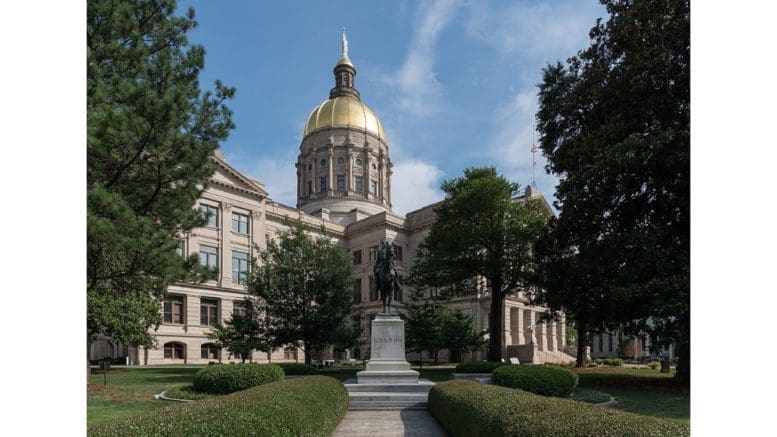by Jill Nolin, Georgia Recorder [This article first appeared in the Georgia Recorder, republished with permission]
December 20, 2022
A bipartisan state panel wants to remix the state’s tax credit for musical productions and crank up other resources for an industry with a rich history in Georgia.
The legislative study committee met over the last few months and toured music landmarks like Capricorn Sound Studios in downtown Macon, where the Allman Brothers Band, Charlie Daniels and other Southern rock pioneers recorded music.
The group of lawmakers from both chambers met briefly in Atlanta Monday to pass a slate of recommendations designed to boost the music industry in ways that would put it more in line with the state’s popular – and in some ways, controversial – film tax credit program that has helped build a thriving industry in Georgia.
In addition to revamping a music tax credit first created in 2017, the group wants to create a Georgia Music Office under the governor’s office that would be tasked with promoting the state’s musical assets and growing the industry. The panel recommended about $600,000 to create the new office.
“Nearly every meeting that we had, somebody or multiple somebodies talked about an independent music office,” said outgoing Sen. Jeff Mullis, a Chickamauga Republican who led the committee. “Because you know, we passed several years ago music incentives that the Department of Economic Development has just ignored.”
Today, there is a film, music and digital entertainment office within the state Department of Economic Development.
“I think the biggest thing is if we can streamline this thing and get more focus on the music industry on its own because film gets a lot more attention and a lot more everything. It’s taking away from our music focus,” said Rep. Dexter Sharper, a Valdosta Democrat who served on the study committee.
The music tax credit program would also be revamped to entice out-of-state productions to spend money in Georgia.
Specifically, the committee recommends allowing a credit of 30-35% of qualified production expenses, lowering the minimum expenditure thresholds for recorded musical productions to $25,000 and allowing aggregation of multiple projects to meet the threshold, and dropping the minimum expenditure thresholds for tour origination for musical or theatrical performances to $200,000.
Mullis said he did not, however, think there was enough support to make the music tax credit transferable like the lucrative film tax credits.
The group also recommends forming a commission representing industry leaders, businesses and educators across the state and funding a grant program for local musicians, studios and businesses.
And the panel wants to see music industry jobs designated as high-demand careers that would qualify for the Technical College System of Georgia’s state-funded apprenticeship initiative.
“I think that would be important to coincide with any cash credits that we do so that we have the workforce available to actually utilize those credits,” said state Rep. Kasey Carpenter, a Dalton Republican who chairs the House Creative Arts and Entertainment Committee.
Carpenter co-sponsored a measure in the 2022 legislative session that would have put the music tax credit more on par with the one for film in hopes of helping Georgia compete with Tennessee and other states. It cleared the House but stalled in the Senate.
The study committee’s recommendations tee up lawmakers for another attempt to boost the music industry this coming legislative session, which starts Jan. 9.
Georgia Recorder is part of States Newsroom, a network of news bureaus supported by grants and a coalition of donors as a 501c(3) public charity. Georgia Recorder maintains editorial independence. Contact Editor John McCosh for questions: info@georgiarecorder.com. Follow Georgia Recorder on Facebook and Twitter.
